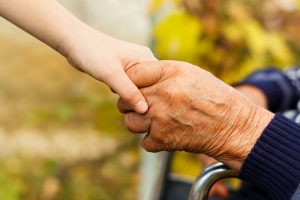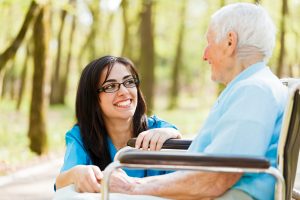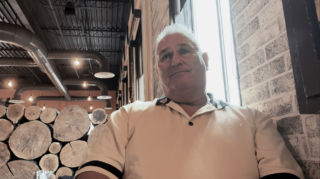Being kind makes you a happier and healthier person
Being kind makes you a happier person. It’s true.
That feel-good feeling you get when you do things such as mowing an elderly neighbor’s yard, picking up the tab for a friend who is short on money or even stopping your car to get out and rescue a dog who almost got hit isn’t just a happenstance. It’s a scientific fact. It’s the way your body thanks you for putting others above yourself.
One single act of kindness a day keeps the doctor away

For, you see, kind behavior causes the brain to release natural pleasure chemicals — dopamine, endorphins, oxytocin and serotonin — that can relieve pain and anxiety in much the same way prescription opioids and antidepressants do.
In addition, kind people have been found to have a lot less cortisol, the stress hormone, helping them age slower and live longer.
Oxytocin, the “love hormone,” makes you feel more loving and loved. It increases self-esteem and optimism. It improves overall heart health.
“Oxytocin causes the release of a chemical called nitric oxide, which dilates the blood vessels. This reduces blood pressure and, therefore, oxytocin is known as a “cardioprotective” hormone. It protects the heart by lowering blood pressure,” Scottish author and kindness guru David R. Hamilton said.
Serotonin heals your wounds, calms you and makes you feel happy.
Endorphins are the brain’s natural pain-killer

Dopamine is a chemical messenger in the brain that can give us a feeling of euphoria. This feel-good brain chemical is credited with causing what’s known as a “helper’s high,” Dr. Waguih W. Ishak, clinical chief of psychiatry at Cedars-Sinai and clinical professor of psychiatry at the David Geffen School of Medicine at UCLA, said.
The catch is that the pleasure these brain chemicals bring is fleeting.
“The trick you need to know is that acts of kindness have to be repeated,” Ishak said.
“Biochemically, you can’t live on the 3- to 4-minute oxytocin boost that comes from a single act,” IsHak, an expert in psychiatry and psychotherapy, said.
Hard to believe as it may be, one single act of kindness a day can not only relieve your anxiety and depression but it can make the world a better place. Serotonin is boosted in not only the giver and receiver of kindness but also in all the people who see it. The happiness you and the person you help feel starts the ball rolling. That person you help will be more likely to help someone else who will help someone else who will help someone else.
Kindness is something we can learn

Researchers have found that kindness is more than merely a biological reflex because, realistically, kindness doesn’t come naturally to everyone. We all know kind-hearted people. That’s just the way they are. They are positive, always think of others before themselves, and consider the way in which their words and actions will affect others.
But, according to the Power of Positivity, a website that has more than 31 million followers, anyone can learn to be kind. It may take conscious effort at first but after a while, it will become second-nature just as it is for people who are naturally kind hearted.
These kindness traits include:
- Forgiveness
- Patience
- Praise
- Positivity
- Helpfulness
- Compassion
- Honesty
- Politeness
- Humility
- Fairness
- Acceptance
If you have – or strive to have – these characteristics, you’ll find yourself with less stress, social anxiety and depression.
Kindness has been with us since the beginning of mankind
Acknowledging the positive effect of random acts of kindness is nothing new. In fact, Greek philosopher Aristotle wrote about it in 350 BC.
“Kindness is great if shown to one who is in great need, or who needs what is important and hard to get, or who needs it at an important and difficult crisis; or if the helper is the only, the first, or the chief person to give the help.”
Some 2,400 years later, scientific studies have not only proven but magnified Aristotle’s words.
A group of highly anxious individuals were tasked with performing at least six acts of kindness a week in a 2015 University of British Columbia study.
It only took a month to find a significant increase in their moods and their desire to interact with others.
Maybe that is where the word mankind comes from, we are meant to be kind.
Being kind is ageless

Who says only the good die young? Not Dr. Stephen Post, a bioethics professor at Case Western Reserve University School of Medicine, who has spent much of his career researching the life-enhancing benefits of giving behavior. In his book, “Why Good Things Happen to Good People,” Post writes that giving oneself delays mortality, reduces depression and increases well-being and good fortune.
It’s never too early to start. Christine Carter, a parenting and kindness expert at UC Berkeley’s Greater Good Science Center, urges parents to teach their children to be kind. And the best way to do that? Be kind to yourself.
At the other end of the age scale, Carter found that people 55 and older who volunteer for two or more organizations have an impressive 44 percent lower likelihood of dying early. That is as good at staving off death as quitting smoking!
The kindness of financial generosity was found to be a driving factor of happiness in a 2010 Harvard Business School survey of people in 136 countries. It found that people who are altruistic were happiest of all.
Be kind to yourself and others

As we know now, being kind to yourself and to others helps to prolong your life, helps you to lead a healthier life, helps you to inspire others, helps to increase your self esteem and helps you to engage more easily with others. That is why we, from Best You Best Me, encourage you to do something nice for someone else (or for yourself) today. Come to the aid of someone who needs it, and make their day a little bit easier. You are not only doing it for them, but also for yourself!
If you are looking for inspiration on how you can help others, check out more of our inspirational blogs.


